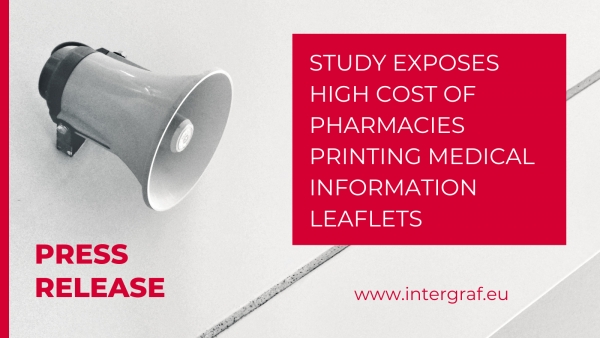18 May 2015
Election result prompts cautious re-reading of Conservative Manifesto
Confounding expectations, the 2015 General Election resulted in the return of a majority Conservative Government. Whilst the new administration will now be able to function without the support of other parties, its wafer-thin majority may well make the task of delivering on Manifesto commitments more difficult. In addition to challenges resulting from the efforts of Opposition parties, Tory backbenchers may be able to exercise more influence on Ministers than before.
Regardless of what we may see in the forthcoming Queen's Speech, some shifts in policy can be expected over the lifetime of the next Parliament. Nevertheless it is still important to re-read the commitments set out in the Conservative Manifesto, and to review the impact these will have on business if implemented.
Priorities for Print 2015-2017 sets out five key areas we want to keep at the front of legislators' minds. We sent this to all parliamentarians at the end of last year, and we shall be mailing it to MPs again ahead of the All Party Parliamentary Print Group Reception we are hosting at the House of Lords on 2 July. It is fair to say that these areas are, to some extent at least, addressed within the Manifesto.
On improving competitiveness, there is a promise to invest over £100bn in infrastructure over the next Parliament. Red tape is to be cut by axing a further £10bn of regulation. There are to be no increases in VAT, National Insurance Contributions or Income Tax. A new Small Business Conciliation Service is to be established to mediate in disputes, ‘especially over late payment'. A major review of business rates is to take place.
On member firms often facing difficulty in participating in government tenders and voicing concerns about accessing funding, the Conservatives commit to increasing SMEs' share of central government procurement to one third, trebling start-up loans, and a ‘significantly higher' annual investment allowance.
On skills, three million new apprenticeships are promised. Classroom-based Further Education courses are to continue to be replaced by apprenticeships, with a University Technical College within reach of every city. Employers' National Insurance contributions are to be abolished on earnings up to the upper earnings limit for apprentices under the age of 25. Further Education is to be improved through the network of National Colleges.
Priorities for Print also recognises the need for our industry to be environmentally responsible (and highlights our record in this area), but argues this must be balanced with the requirement for reliable, affordable energy. We shall need to see how the Manifesto commitment to ‘guarantee clean, affordable and reliable energy supplies' pans out in practise. And we will need to continue to argue the case for greater competition between energy suppliers, investment in new generating capacity to improve security of supply, and incentives for companies to improve energy efficiency (including retaining our industry's Climate Change Levy Rebate Scheme).
We shall also need to keep articulating print's role in society, ensuring that public officials responsible for producing and purchasing marketing, information, communications and educational materials understand that print is both highly effective and inherently sustainable.
Finally, we have to consider the promised 2017 referendum on EU membership. The uncertainty this will generate between now and then could well impact on inward investment, and any decision to ‘Brexit' would have serious implications for trade. Whether a referendum represents a chance to finalise the debate on this once and for all remains to be seen. Hopefully, we might have the opportunity to do so sooner rather than later, and ideally against the backcloth of EU reforms that enhance the competitiveness of the UK and Europe as a whole.
 Intergraf Economic News (Paper Prices) - March 2024
Intergraf Economic News (Paper Prices) - March 2024
18 March 2024
Access the latest edition of the Economic Newsletter for the European Printing Industry for data on paper consumption, and pricing data for pulp, paper and recovered paper. Data for packaging papers and board is also available with this edition.
 STUDY EXPOSES HIGH COST OF PHARMACIES PRINTING MEDICAL INFORMATION LEAFLETS
STUDY EXPOSES HIGH COST OF PHARMACIES PRINTING MEDICAL INFORMATION LEAFLETS
7 March 2024
Intergraf welcomes the release of a study by our partner MLPS (Medical Leaflet = Patient Safety), a subgroup of the European Carton Manufacturers Association (ECMA) shedding light on the potential economic costs associated with the proposed use of Print on Demand (PoD) leaflets in the pharmaceutical legislation revision.

The BPIF is the printing industries champion. By becoming a member you join a diverse and influential community. We help you solve business problems, connect you to new customers and suppliers and make your voice heard in government.
Call 01676 526030









